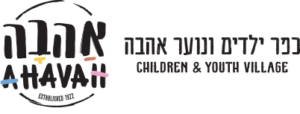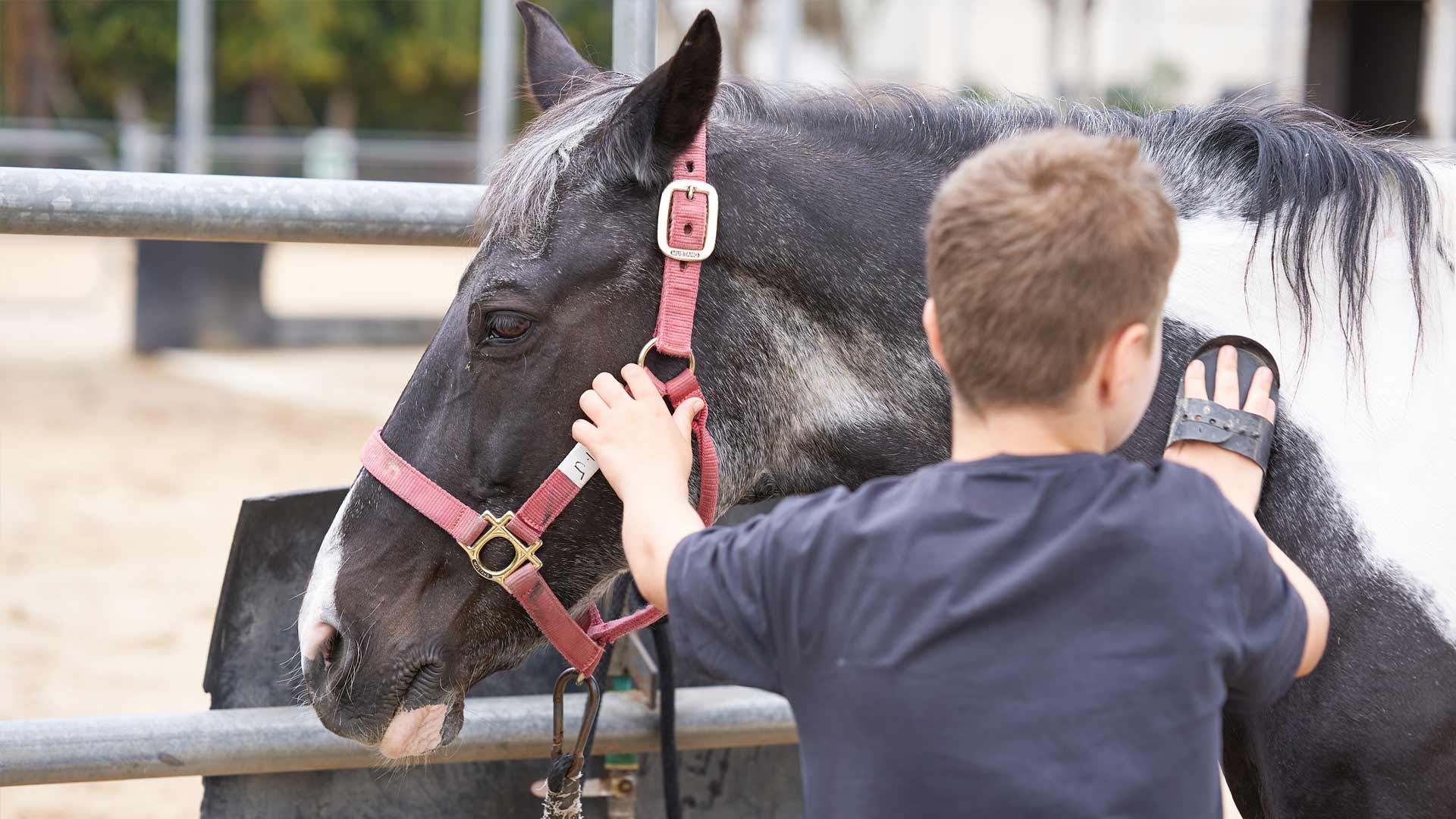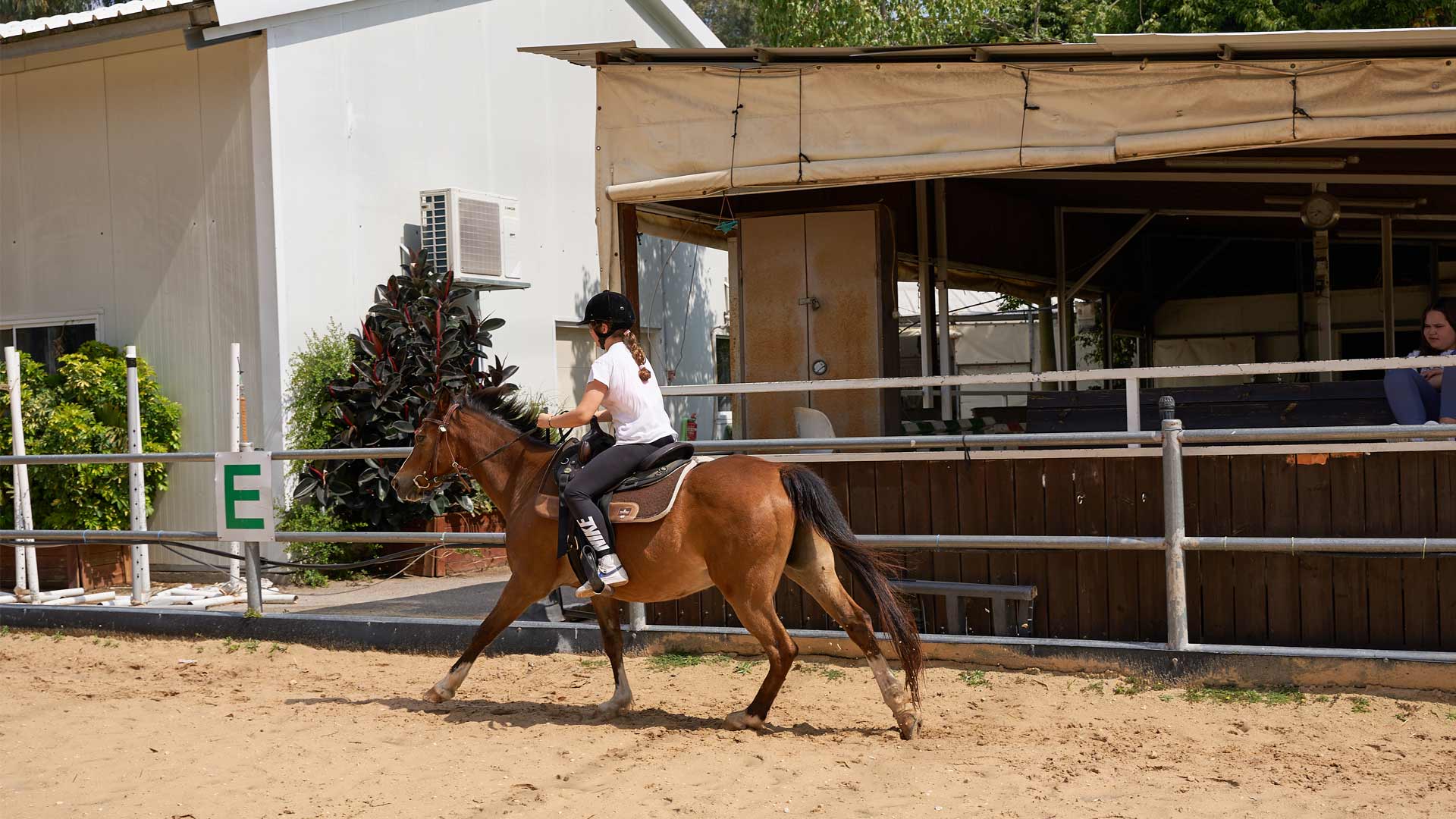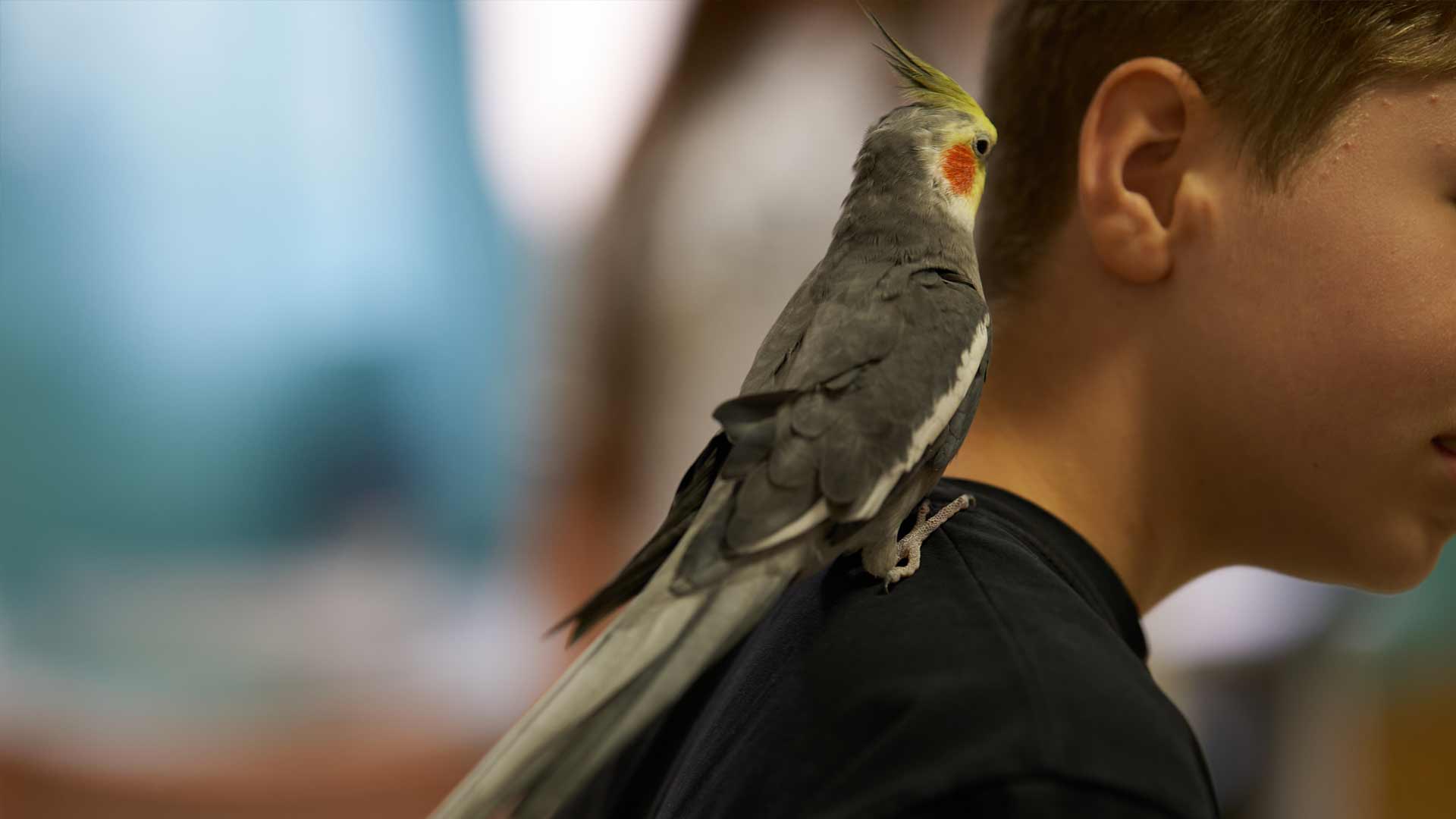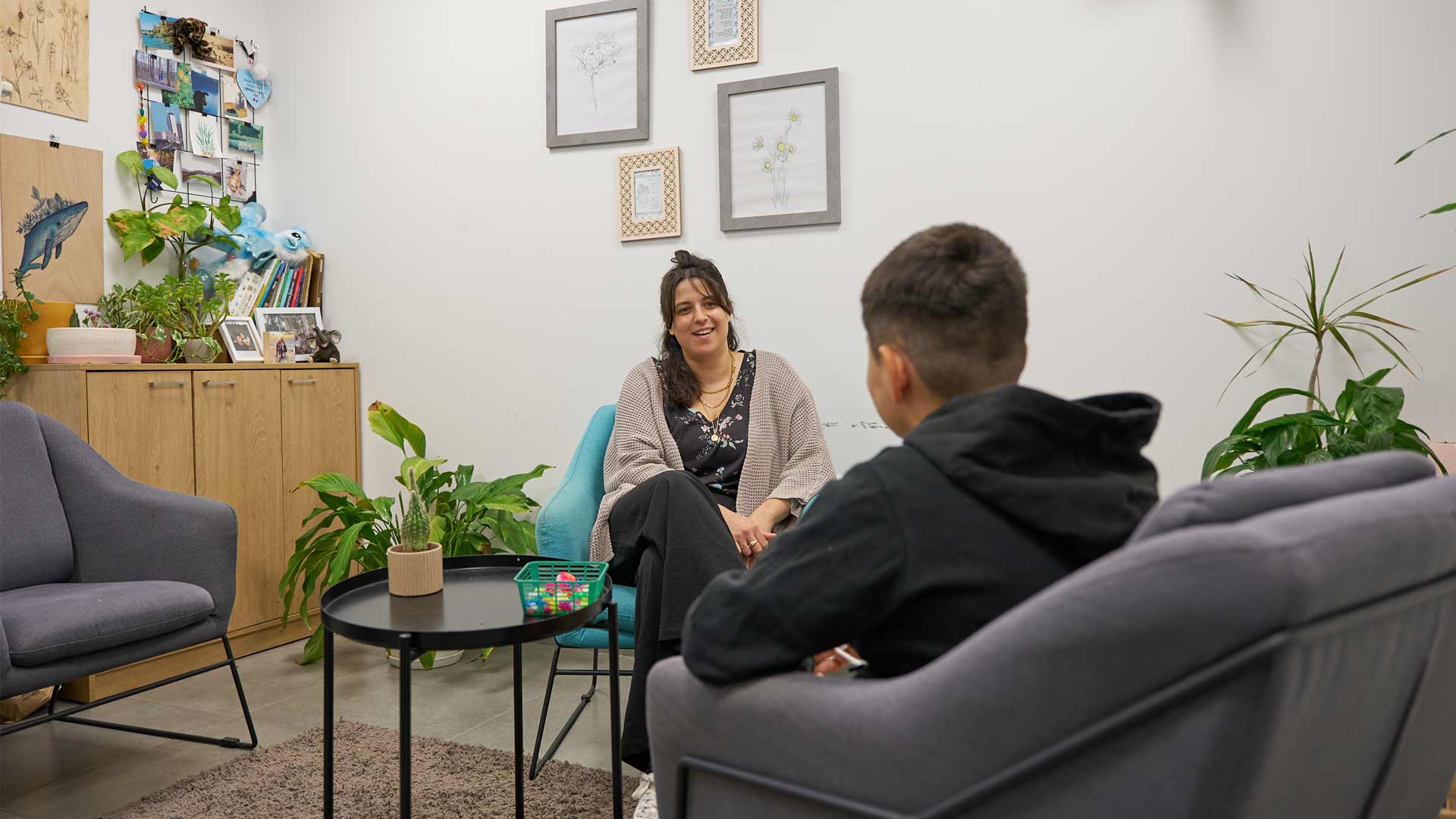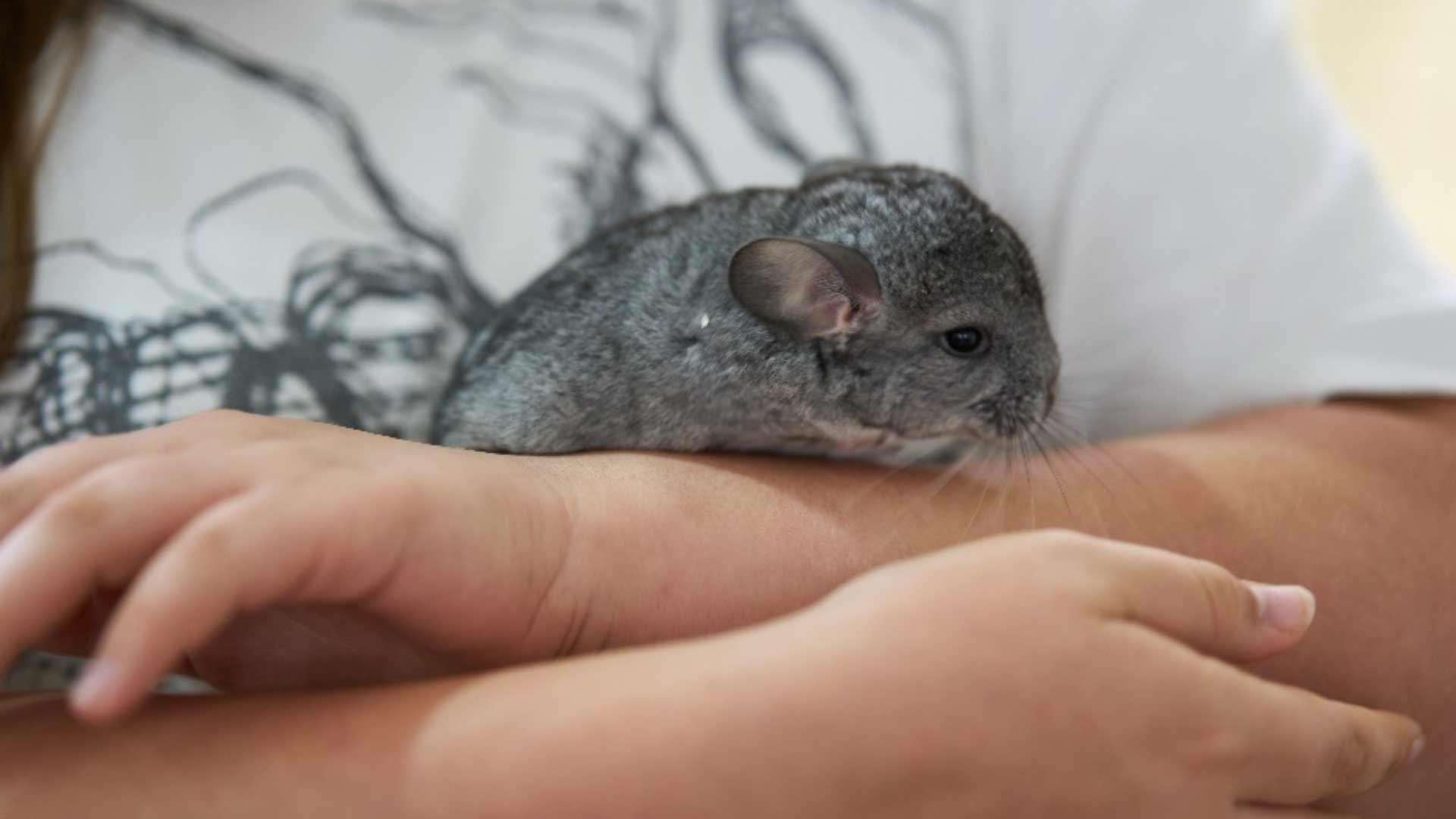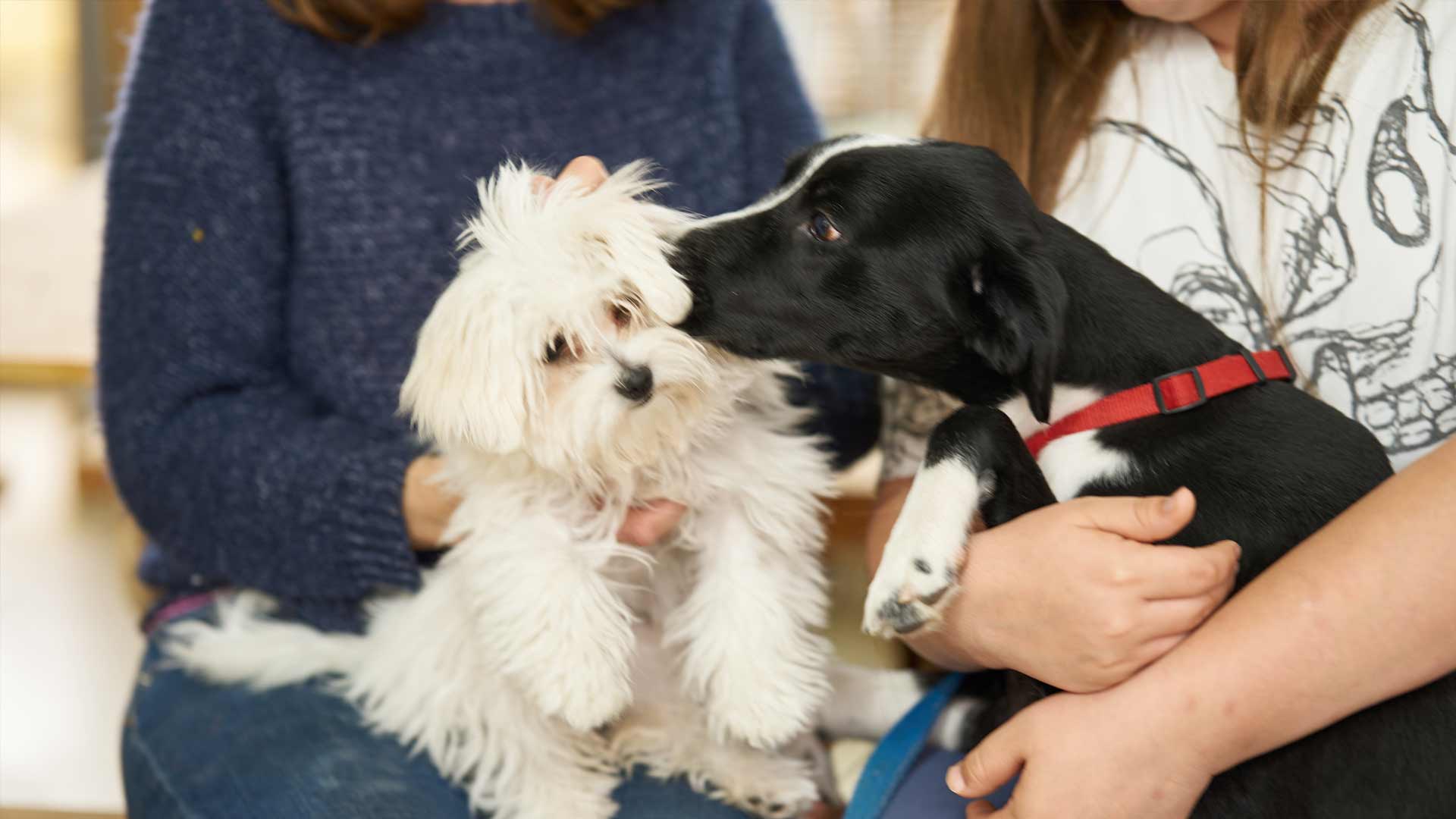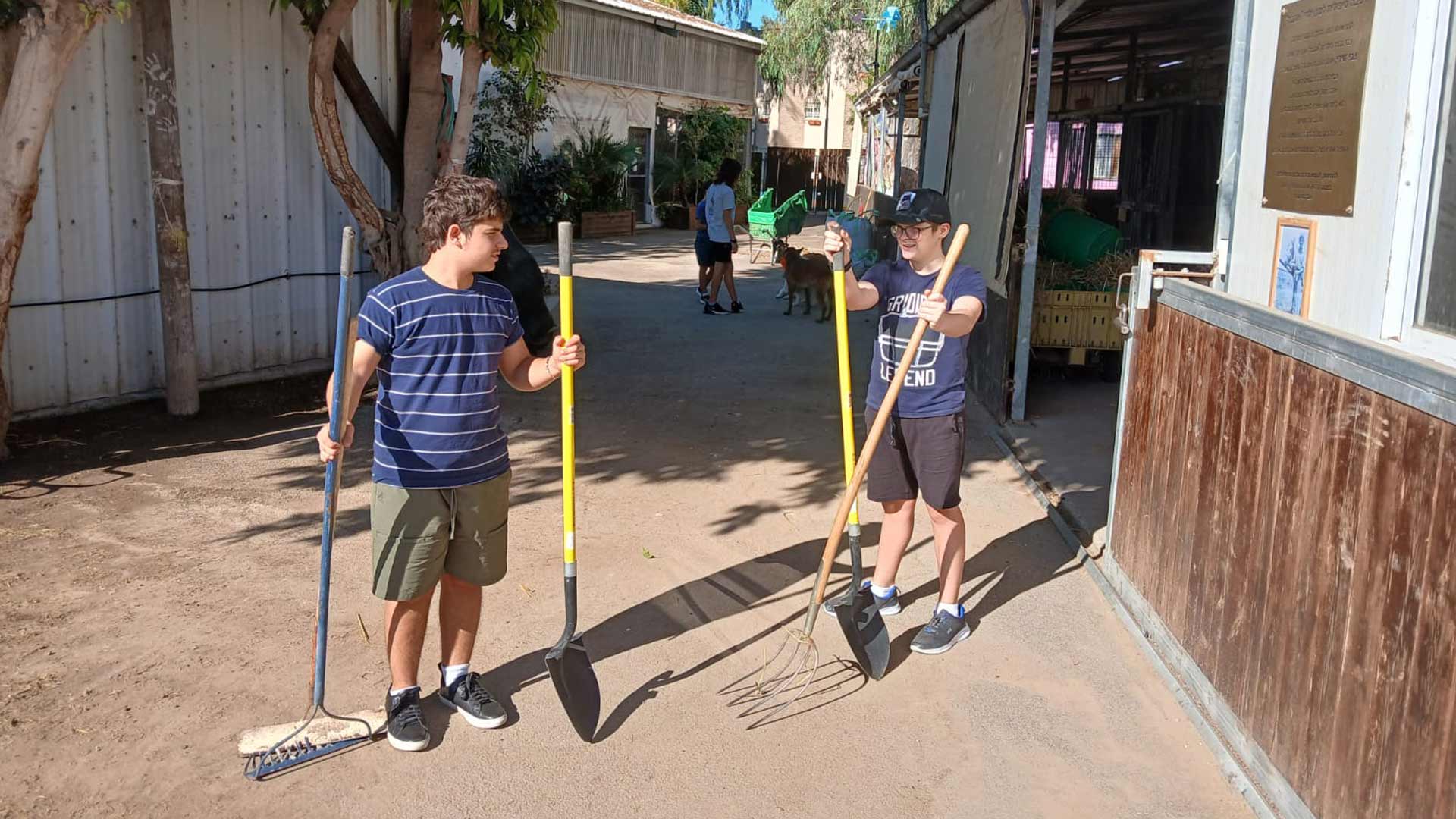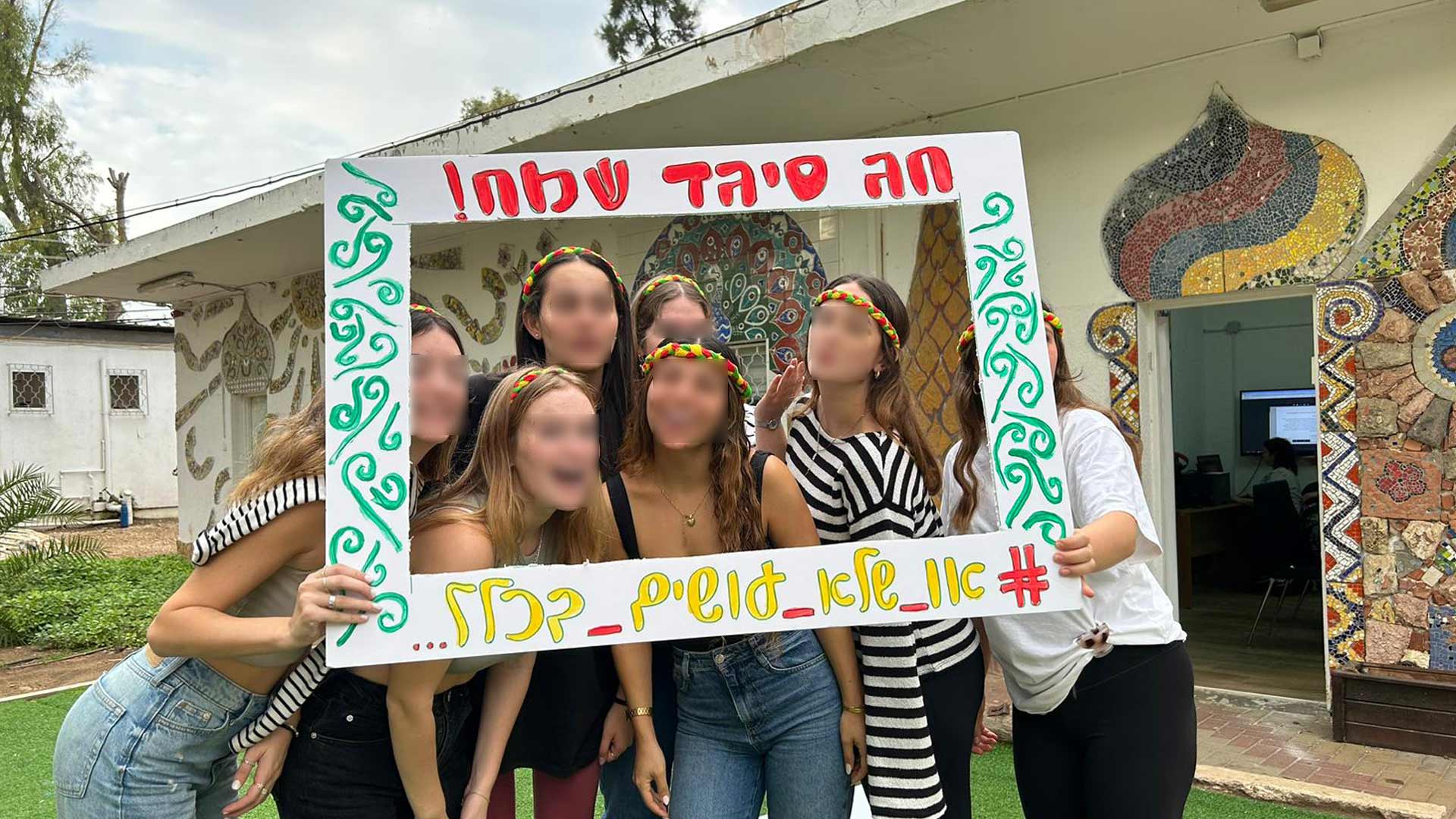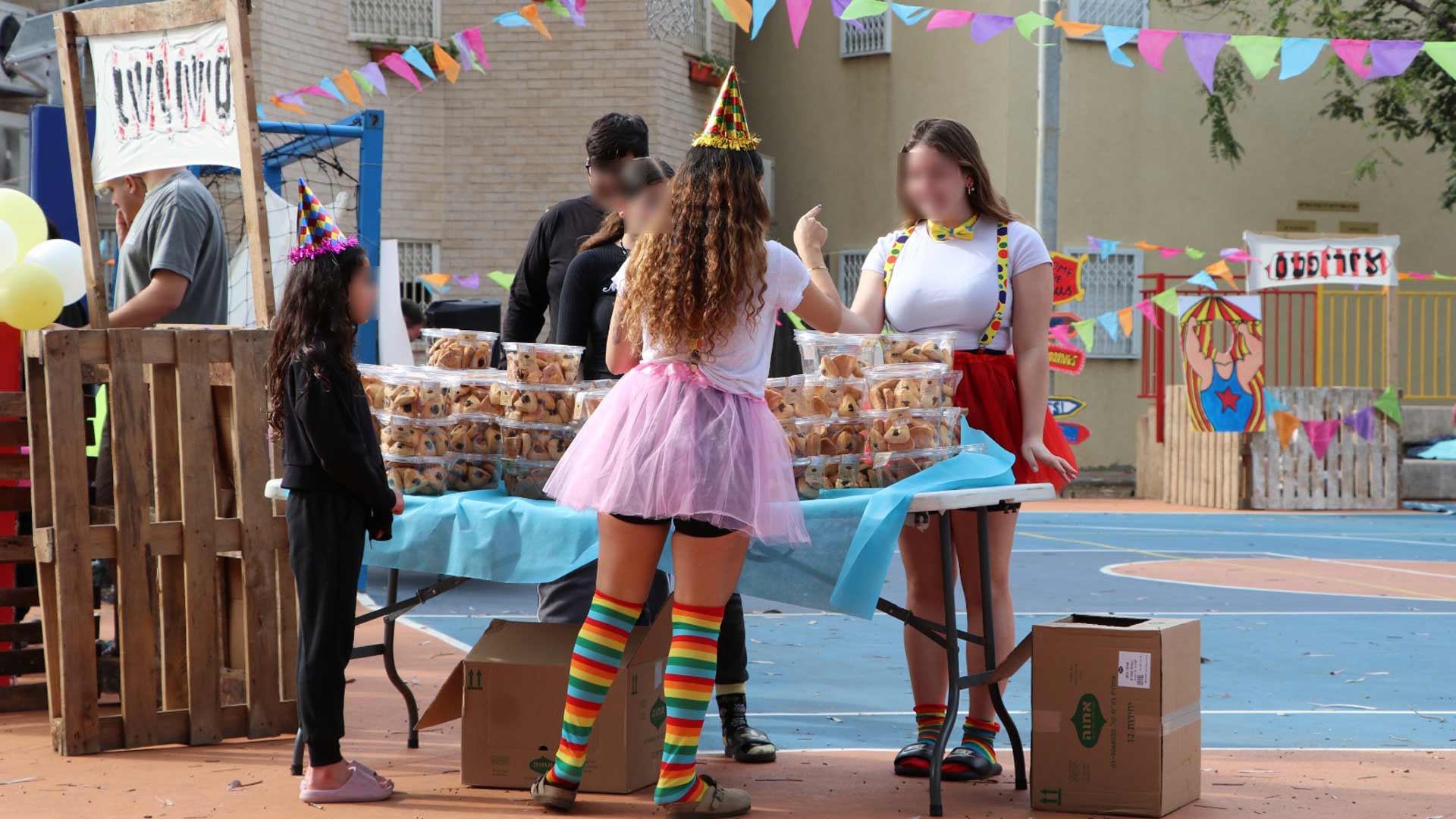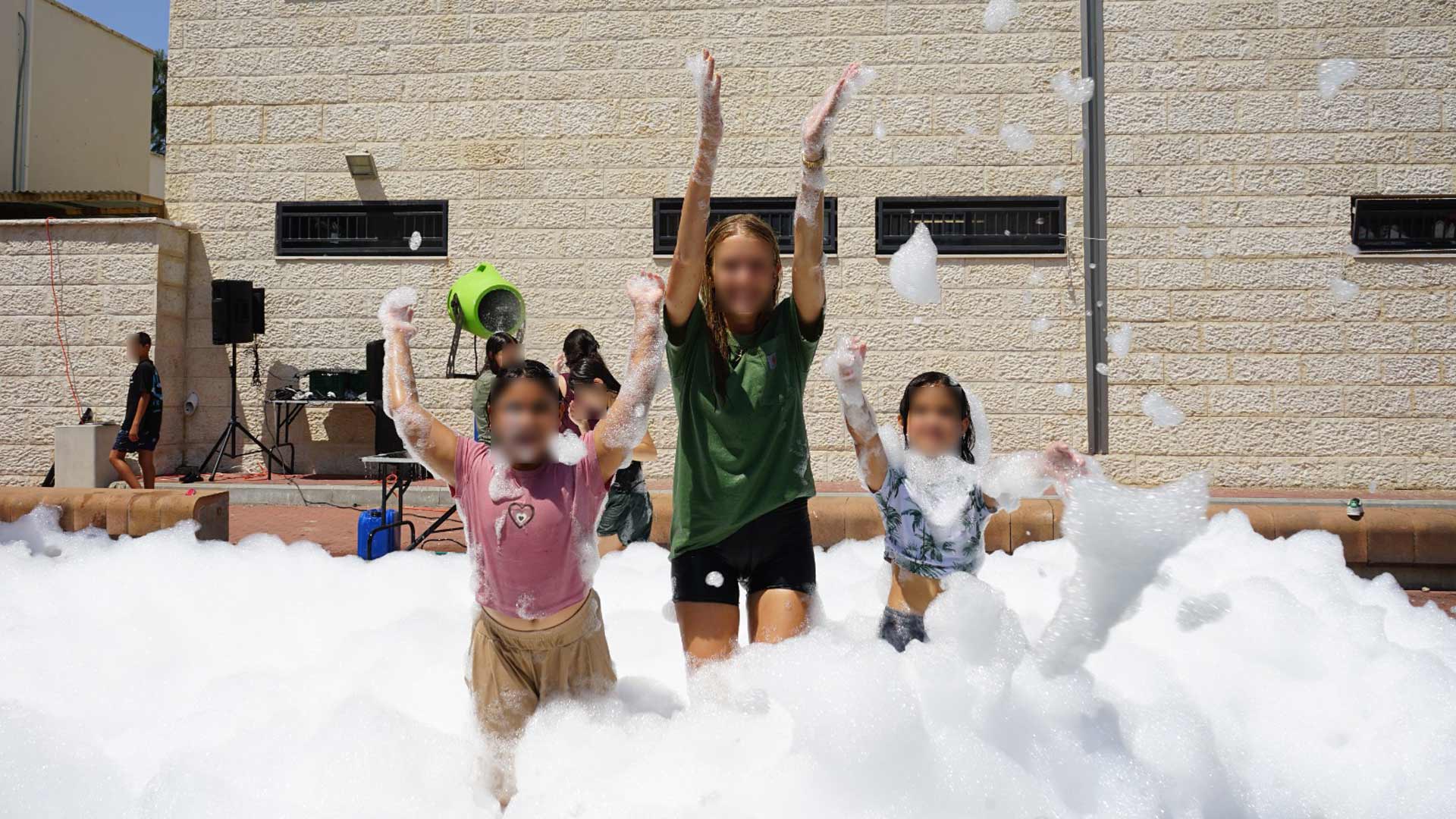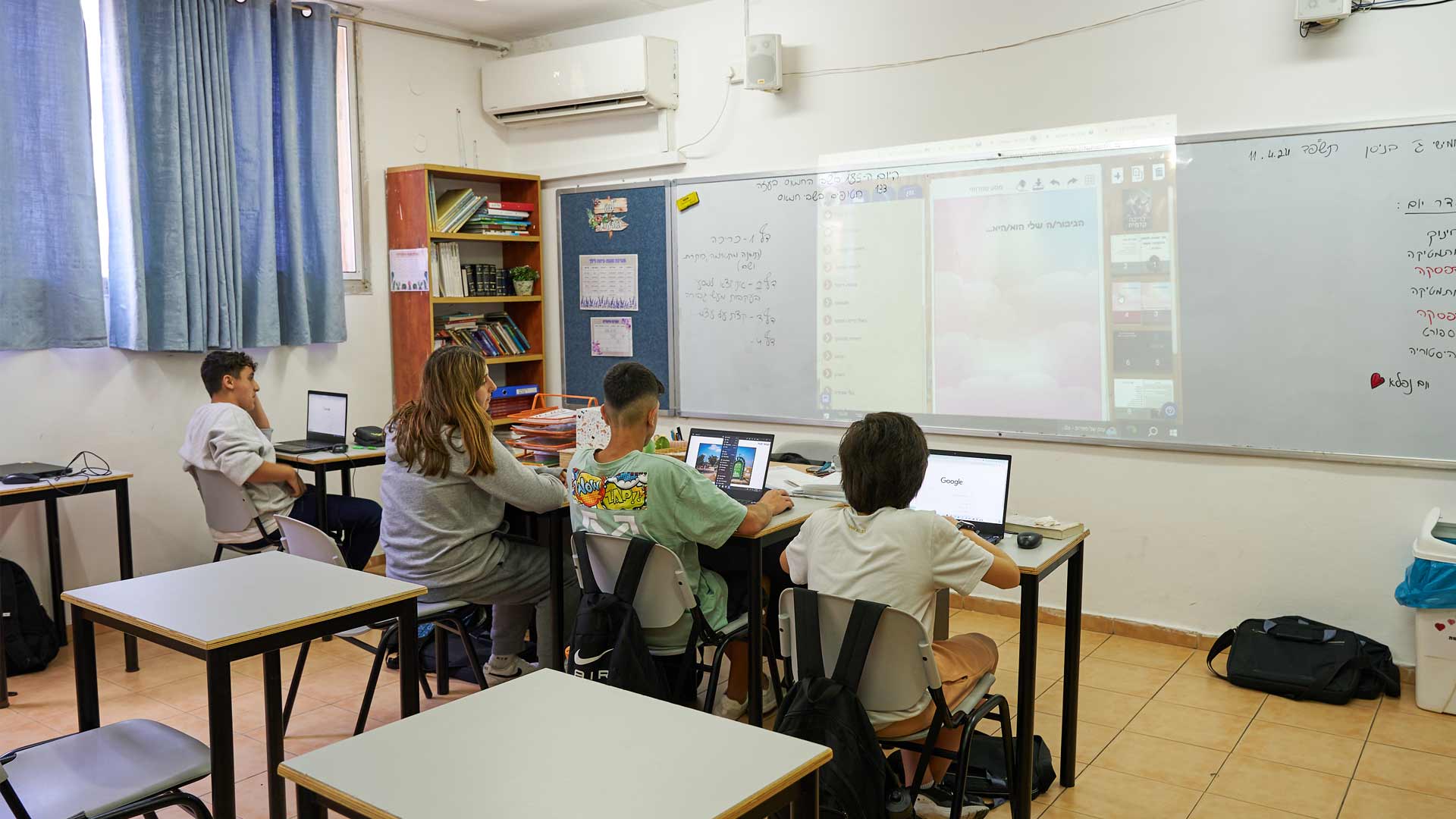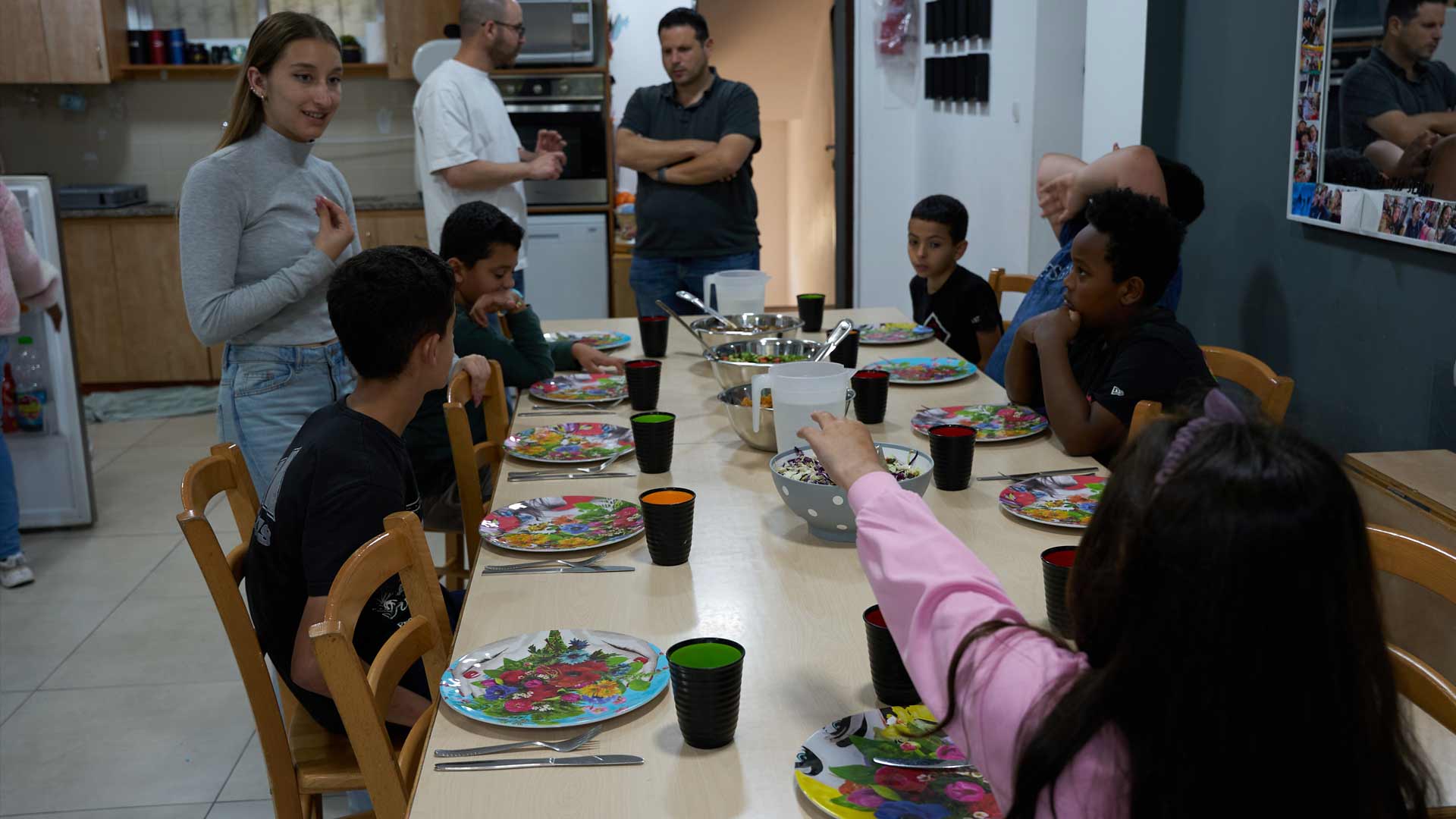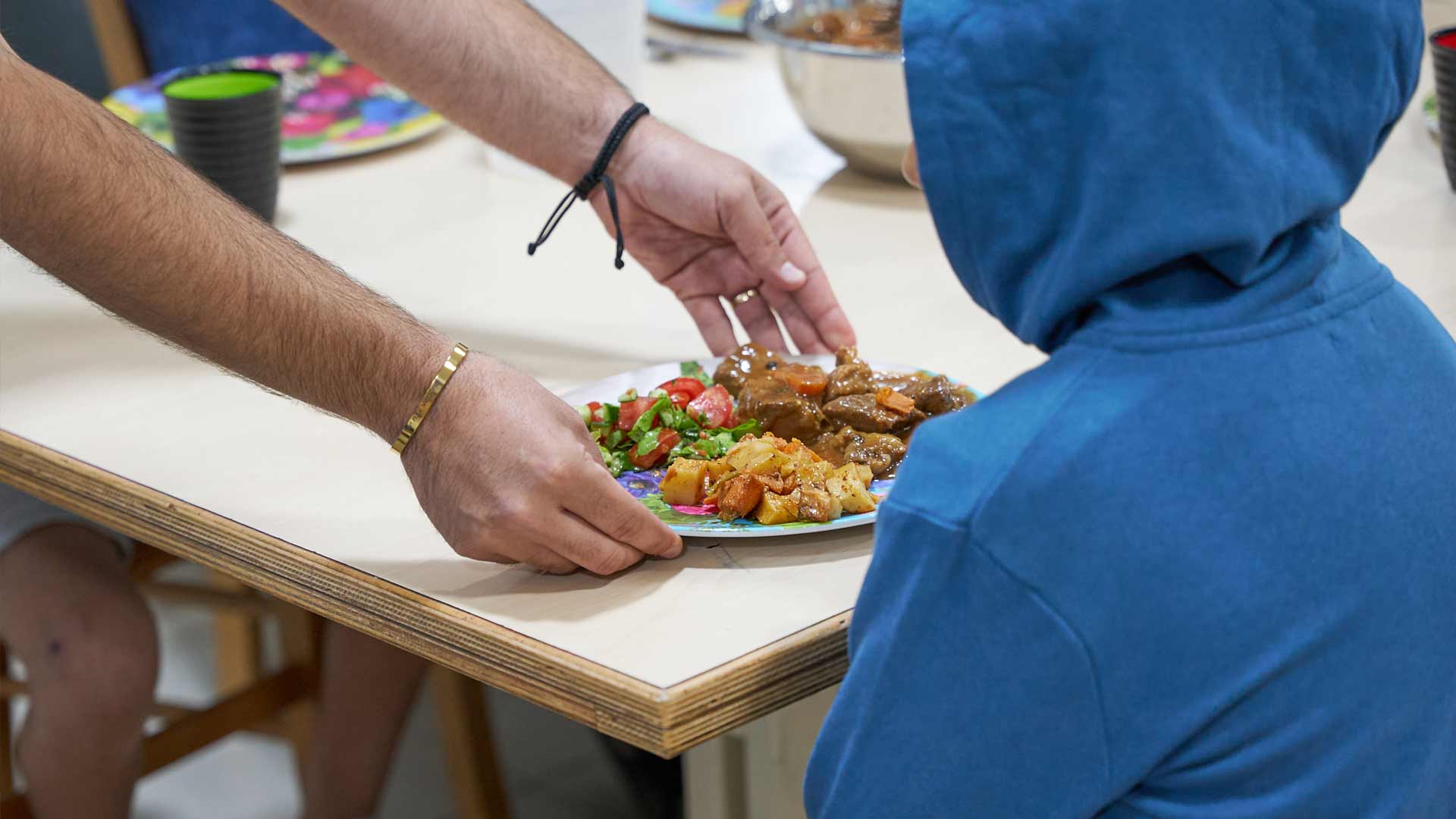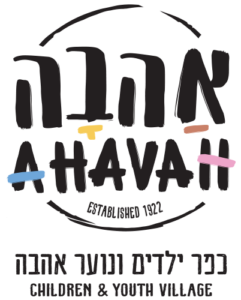Therapy at Ahava
Therapy at Ahava
The therapeutic philosophy of Ahava is holistic, encompassing all aspects of a child’s life.
The therapeutic philosophy of Ahava is holistic, encompassing all aspects of a child’s life.
Each child first receives support for their physical needs, which helps foster a sense of security and belonging. Once these needs are met, the child becomes receptive to long-term therapy tailored to their individual circumstances.
The team surrounding the child collaboratively create a personalized treatment plan that integrates various therapeutic approaches to address their specific needs.
The physical structure and the ideology of the village allow each child to form bonds with meaningful adult role models, connect with peer groups suited to their age and abilities, and above all, become a part of a supportive and empowering community.
Ahava Village employs 40 professional therapists, social workers, psychotherapists, psychologists and psychiatrists.
Each family home care unit is assigned a social worker who guides the child and their family. They also provide guidance to the counselors and team in order to ensure they are aligned with the therapeutic processes.
Safety Initiative
A comprehensive systematic intervention program whose goal is to create a social climate that reduces violence and encourages dialogue. The process aims to combat bullying, harassment and delinquency. The program puts emphasis on self-empowerment which in turns enriches their education, increases confidence and helps them to avoid inappropriate behaviors. The intervention is under observation for research purposes in collaboration with Professor Rami Benbenishty and Dr. Shalhevet Attar-Schwartz.
Animal Therapy
Children who struggle connecting with others are often able to connect with animals. Under the supervision of a professional and through a unique process the children care for the animal and develop a special connection with it. This connection allows a diagnostic picture to emerge of the child’s emotional-behavioral state. Relationships with animals allow the child a deeper introspection on their emotions and behavior and therefore allows the child and therapist to make critical changes. In our petting zoo we treat 100 children with a wide variety of animals including horses, donkeys, goats, rabbits, birds, reptiles, dogs and more.
Private and Group Therapies
Private and Group Therapies
Therapeutic methods at Ahava are based on knowledge and research. The therapeutic structure includes a diverse team of professional therapists, trained to address the unique needs of the children.
Private Therapy
Private therapy allows a long-term connection to be built with a professional. The therapist adapts the therapy method to the child’s needs and becomes an essential support to the child through both times of success and times of crisis.
Group Therapy
Group therapy is a psychological method with one or more therapists working with a small group of teens or children.
The group facilitates social interaction, learning from others and a feeling of belonging through shared experiences and challenges. The group setting as a tool allows for the evaluation and development of interpersonal relationships that arise between members of the group.
Every year we offer different therapy groups surrounding different subjects that are adapted to the current needs that arise. The content of the groups focuses on topics like violence, sexuality, self-control, brotherhood, femininity, puberty, loss and closure.
Family and Dyadic Therapy
At Ahava we recognize the importance of the family and its essential role in a child’s mental and emotional development. That is why we offer a unique and comprehensive program of dyadic or family therapy which aims to strengthen the family bonds and to assist with overcoming challenges and conflict.
The goal of family therapy is to promote the needs of the family overall, through the understanding that families are dynamic and each member influences and is influenced by the other. We believe that the mental well-being of the child is dependent on the relationship they have with their family and it is therefore of great importance to treat the whole family as one.
The therapeutic team uses a variety of methods which are adapted personally in order to empower the unique strengths and abilities of each family.

